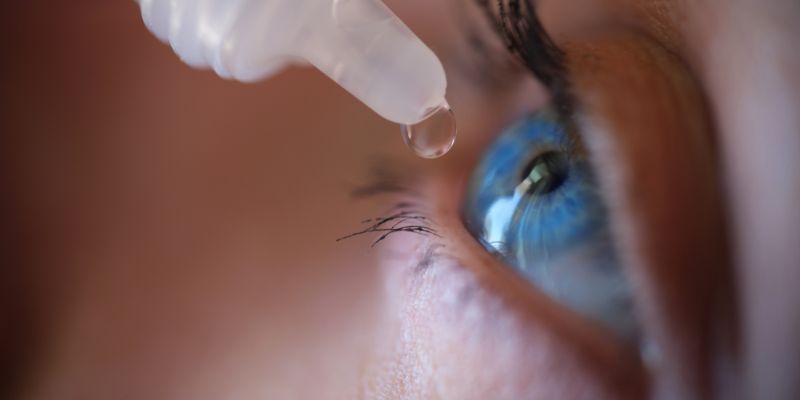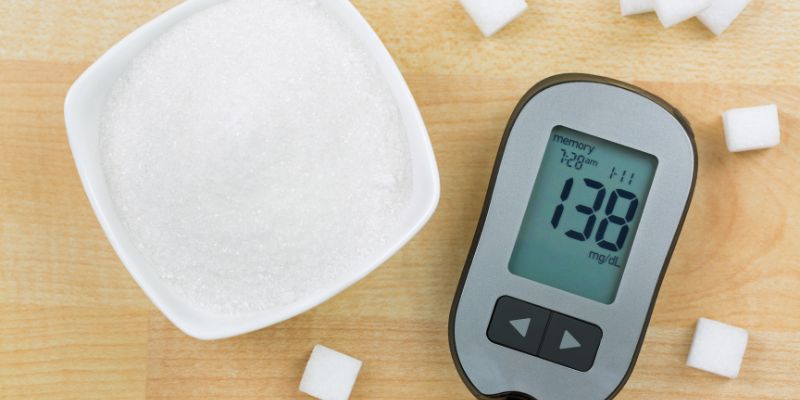Can Berberine Supplements Help Manage Diabetes: An Understanding
The old and traditional ways of treating certain diseases are quite popular among many cultures. Also, people find them more effective than modern-day medicine. However, it is subjective and depends on one's beliefs and the treatment method. Likewise, many modern studies and research show that berberine supplements have beneficial properties. Berberine is a compound that has many health benefits and is used to treat some serious conditions.
Berberine is popular among Chinese, Indian, and Middle Eastern folk medicines. It has been used to treat many metabolic conditions for thousands of years, and in modern times, it proves to be effective in treating and regulating blood sugar levels, high blood pressure, and even heart conditions. Well, whether berberine is that effective in treating diabetes, let's find out here!

Understanding Berberine Supplements
Berberine is a yellow-colored compound with a bitter taste. It is found in many plants, including the Oregon grape, turmeric tree, Phellodendron, European barberry, goldenseal, and goldthread. The compound is extracted and used to treat many chronic health conditions, including heart conditions, blood sugar, high blood pressure, inflammation, burns, and liver diseases.
Berberine is commonly used as a gastrointestinal remedy in China and the Middle East. Still, its amazing healing properties are making it popular as an OTC in the United States. It is gaining a lot of attention online, and people who use it claim satisfactory results in treating their type-2 diabetes, high blood pressure, and lowering glucose levels. Some even consider it equivalent to modern medications. But is it beneficial and safe to use? Let's explore more!
Research and Studies on Berberine
There are divided opinions about research and studies on berberine and its effectiveness in treating diabetes and other conditions. However, many studies show it is safe and has amazing results against many health conditions. Several studies also raise concerns over its efficacy, as most data available is from China, and more is needed for its use or efficacy among diverse populations. It is not tested at a large scale or in clinical trials; it is mostly sold as a placebo or randomized medicine. It doesn't have any FDA approval, and it does not fall under the category of medicine. It is recognized as a supplement, so it doesn't undergo normal FDA reviews.

Berberine and Diabetes
Due to the increase in Diabetic patients and the cost of treatment, people look for other options to treat their illness. Many people tend to test organic food due to its organic nature and more economical price. However, it is important to understand that not all natural or organic means are safe.
Research and studies suggest that berberine is a potent oral hypoglycemic agent that modestly affects lipid metabolism. It is cost-efficient and safe to use. You can use it to treat your type-2 diabetes, but this is based on a pilot study. But even then, you must consult your health care professional before using it.
Efficacy of Berberine
According to studies, the question of the efficacy of berberine in treating type-2 diabetes needs more data to strengthen its use in a large or general population. As a pilot study, it needs to be tested on a much larger population to get more concrete results. Similarly, it must be tested across different ethnic groups, and it's too early to declare it safe for all.
How Does Berberine Supplement Help Manage Diabetes?
As mentioned in different studies, one of the main properties of berberine is that it activates important enzymes in your body that help regulate your metabolism. Once your gut health is improved, your chances of managing your blood sugar become higher. Now, how Berberinewill does that? Well, the compound lowers your sugar level in people with type-2 diabetes. Berberine works on different levels with multiple mechanisms, such as:
- It helps lower insulin resistance, making insulin more effective in reducing sugar levels.
- The compound increases glycolysis, which helps your body to break down sugar inside cells.
- Berberine slows down the disintegration of carbohydrates in your gut.
- It supports and increases the good bacteria in your gut.
Is Berberine Safe for Diabetic Patients?
Diabetes is one of the most widely spread conditions in this modern age. Although treatment procedures, equipment, and prescriptions have changed with the advancement in research and technology, many people still look for other options, such as herbal medicines, to treat their conditions. Berberine may help you manage your diabetes in this regard.
But, if you are taking other medicines for diabetes or blood pressure, you must consult your doctor before taking berberine. As per NCCIH (National Center for Complementary and Integrative Health), the following are some potential risks of berberine:
- Berberine may interact with other medications, like metformin.
- As there is no mention of how much of an active ingredient is present in a certain supplement, you may end up taking the wrong dose.
- Taking it too much without knowing the side effects is always risky.
- More data or evidence is needed to support its long-term use and effects on the body.
- It is strictly not allowed for pregnant women, children, and breastfeeding mothers as it may hurt the fetus's health.
Conclusion:
Berberine may be beneficial for treating type-2 diabetes due to its amazing healing properties, but there is not enough data or research showing how it will affect you in long-term use. Similarly, a berberine supplement may give amazing results in the short term. Still, its efficacy remains doubtful as it needs to be tested on a large population before drawing any concrete conclusion. Suppose you are planning or trying to take berberine to manage your diabetes. In that case, it's better to consult with a healthcare professional, as it may interact with your medication and cause complications.












